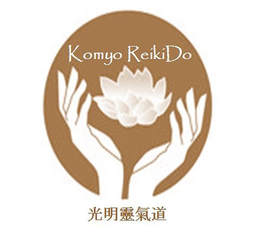Komyo ReikiDo Codes of Practice
At the heart of the Codes of Practice, are our Mission, Vision & Code of Ethics. The Codes of Ethics underpin our Codes of Practice and must be adhered to by the Komyo ReikiDo community.
Komyo ReikiDo (KRD) students, practitioners, and teachers are required to follow the Codes of Practice and to provide their personal commitments to study, practice, and/or teach Komyo ReikiDo as taught by Inamoto Hyakuten.
KRD Students will:
KRD Practitioners/Teachers will:
KRD Practitioners/Teachers will NOT:
Codes of Practice for Komyo ReikiDo (KRD) Teachers
The purpose of the Codes of Practice for KRD Teachers is to provide definitive guidelines on acceptable KRD teaching practices and to preserve the KRD system.
The codes below are in addition to the above KRD student, practitioner, and teacher codes of practice.
KRD teachers WILL:
KRD teachers MAY:
KRD Teachers MAY NOT:
If you have any queries or comments, please use the contact page.
Komyo ReikiDo (KRD) students, practitioners, and teachers are required to follow the Codes of Practice and to provide their personal commitments to study, practice, and/or teach Komyo ReikiDo as taught by Inamoto Hyakuten.
KRD Students will:
- follow the Codes of Ethics and Codes of Practice.
- follow the class requirements for each level.
- not share KRD manuals. Manuals are strictly for personal use only and may not be copied, altered, or distributed.
- regularly attend online and/or in-person KRD Reiki Shares.
KRD Practitioners/Teachers will:
- follow the Codes of Ethics and Codes of Practice.
- be clear and transparent on their services and qualifications.
- provide an appropriate, clean, and safe environment for Reiki Ryoho sessions and classes.
- obtain verbal and/or written consent for sessions where legally required. For underage clients, students, or those with cognitive issues, consent must be obtained by a parent, guardian, or healthcare proxy.
- keep appropriate and accurate records on Reiki Ryoho sessions and/or classes.
- maintain records of personal information strictly confidential according to the professional regulations and legal requirements of each country.
- advise clients or students that a Reiki Ryoho session is not a replacement for treatments prescribed by their healthcare provider.
- encourage clients or students to seek healthcare professionals if disclosed medical issues are outside their scope of practice and qualifications.
- regularly attend online and/or in-person KRD Reiki Shares.
- obtain permission to use the name of Komyo ReikiDo in their business name if desired. This includes websites, Facebook/Instagram, or any social media business page. Please contact KRD International or the KRD representative of their country for approval and conditions of use.
KRD Practitioners/Teachers will NOT:
- take advantage of clients or students emotionally, psychologically, physically, sexually, and/or financially.
- practice or teach under the influence of illicit drugs or alcohol.
- make any claims about curing illnesses/disabilities.
- promise an outcome from Reiki Ryoho sessions or classes.
- incorporate other modalities in Reiki Ryoho sessions or classes.
Codes of Practice for Komyo ReikiDo (KRD) Teachers
The purpose of the Codes of Practice for KRD Teachers is to provide definitive guidelines on acceptable KRD teaching practices and to preserve the KRD system.
The codes below are in addition to the above KRD student, practitioner, and teacher codes of practice.
KRD teachers WILL:
- use and provide official, updated Komyo ReikiDo manuals for classes/refreshers.
- use the KRD square Hanko on Komyo ReikiDo certificates. The KRD round Hanko or a personal Hanko is optional.
- teach each official level of Komyo ReikiDo according to the KRD class standards and use the KRD class standards as the base minimum of their classes.
- need to be mindful to only share verified and accurate information and quote the source of this information.
- conduct all Reiju (initiation) in-person.
- embody their KRD practice, that is, be an excellent example to their students and practice what they preach.
- advertise their classes as Komyo ReikiDo and be clear on the course content.
- offer a minimum monthly online and/or in-person KRD Reiki Shares to support students’ practice and growth.
- refer to the Code of Ethics & Codes of Conduct on the KRD International website in their KRD classes.
KRD teachers MAY:
- verbally supplement their courses with their experience of Reiki Ryoho.
- provide additional written course materials that may be required to comply with membership criteria of national Reiki Professional Associations and/or for professional requirements for conventional healthcare bodies.
- increase the class time or break it down into increments to suit their style of teaching as long the minimum class time is reached.
- set post-class requirements to include but are not limited to, self-treatment journals, records of distant healing/treatments, demonstration, and use of KRD symbols.
- Exams and/or essays are required for higher levels of Komyo ReikiDo as per KRD class standards.
- issue certificates at their discretion, either at the end of the course or at some later date.
- use the KRD square Hanko and logo to market Komyo ReikiDo on websites, Facebook/Instagram, brochures, etc.
KRD Teachers MAY NOT:
- mix other Reiki systems and/or other modalities with Komyo ReikiDo and call the system Komyo ReikiDo.
- alter manuals in any way, that is, add to or delete parts of manuals unless written permission is given by Inamoto Hyakuten.
- sell KRD Manuals. The cost of replacing manuals is allowed.
- share electronic copies of manuals.
- upload manuals, part or whole to websites or any social media.
- share printed copies with non-Komyo ReikiDo practitioners/teachers.
If you have any queries or comments, please use the contact page.

